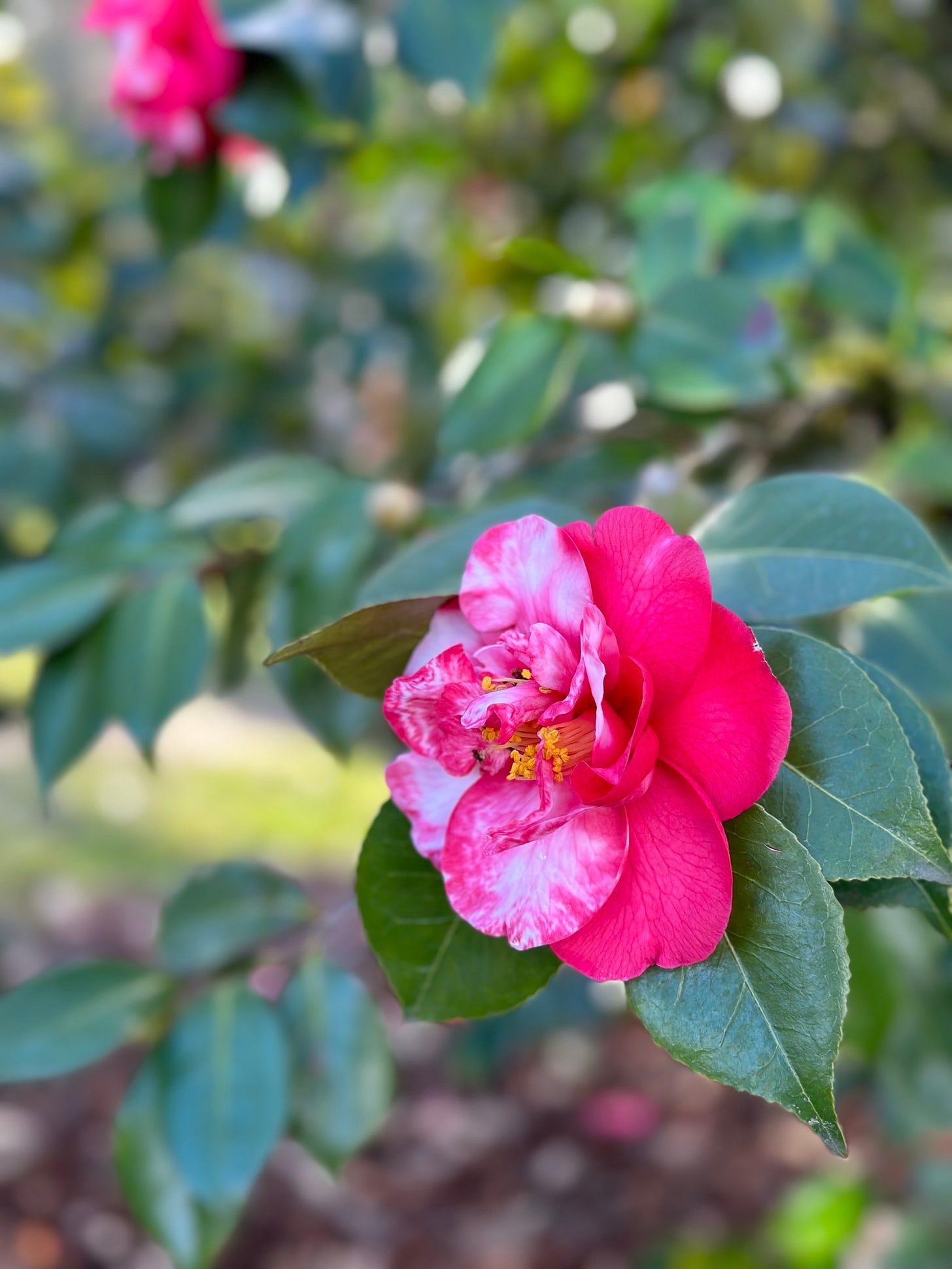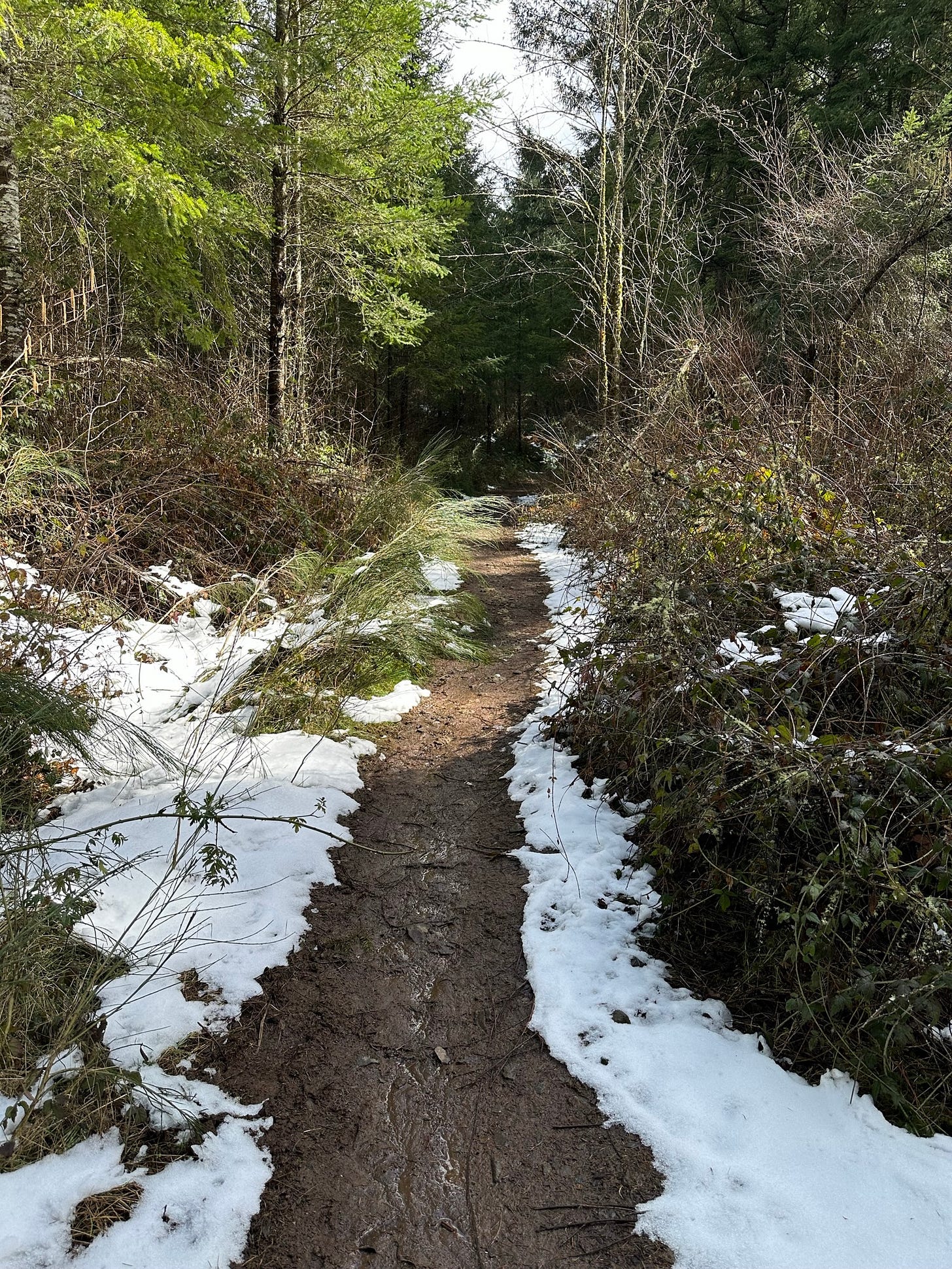Are We Really Hard-Wired for Pleasure?
A little bit of science and a little bit of magic this week
Welcome to Spring, Issue #2 of Making Time. Each week, I share a seasonal perspective on the creative process. This month, my theme is Space to Create. If you’d like to follow along on this year-long experiment, you can subscribe for free.
Sniffing the flowers
We celebrated my niece’s second birthday this weekend. It was a small family gathering: a homemade cake with sprinkles, chocolate ice cream, dancing with her to James Brown in the living room, a walk in the park, showing her how wonderful daphne smells now that it’s blooming, noticing all the early spring camellias in red and pink.
It was a series of little pleasures. By the end of the evening, I felt most of the anxiety I mentioned last week had been peeled away.
I just finished listening to Your Body is Your Subconscious Mind, based on a lecture and series of interviews with Dr. Candace Pert, a neuroscientist who discovered the opiate receptor back in 1972. In it, she talks about the “information molecules” within us, such as peptides and neurotransmitters, and the receptors that are present throughout the cells of our entire bodies, not just the brain.
These transmit information everywhere in our bodies and defy the idea that thinking and emotion originate only in our heads. Instead, the brain is a powerful network that extends throughout our entire physical being, and we are completely awash in the chemicals of the mind.
Speaking about pleasure, she says:
“It seems like based upon the anatomy of the opiate receptor distribution and what we know about this distribution, I hate to say this, it seems like our whole brain is organized around pleasure. We are literally hard-wired for bliss, and our brain kind of exists to maximize our pleasure, the way I see it.”
This idea, that we were made to find pleasure, seems at once obvious and radical. We’re all probably aware that we’ve evolved to seek pleasure and avoid pain, and that this has been crucial to our survival, just as it is for any animal.
But I’ve internalized the idea that pleasure-seeking and pain-avoidance are instincts we need to transcend. That’s because it’s so damn obvious that the relentless pursuit of pleasure leads to so much ill – greed, envy, addiction, you name it. It’s a path towards long term misery.
But it really isn’t pleasure that’s the problem. It’s the wanting, the pursuit, the striving towards more and more. It’s the feeling that there’s never enough.
In biological terms, it’s the dopamine taking over. Dopamine used to be thought of as a pleasure chemical, but it’s actually more of a desire chemical. It impels us to always want more, to never be satisfied.
As Daniel Z. Lieberman and Michael E. Long write in The Molecule of More:
“From dopamine’s point of view, having things is uninteresting. It’s only getting things that matters. If you live under a bridge, dopamine makes you want a tent. If you live in a tent, dopamine makes you want a house. If you live in the most expensive mansion in the world, dopamine makes you want a castle on the moon. Dopamine has no standard for good, and seeks no finish line. The dopamine circuits in the brain can be stimulated only by the possibility of whatever is shiny and new, never mind how perfect things are at the moment. The dopamine motto is ‘More.’"
They contrast this with the “here and now” chemicals, such as serotonin, oxytocin, endorphins, and endocannabinoids. These are the chemicals that bring the pleasure when I hug my niece on her birthday, or watch her learn the word “daffodil”, or admire that camellia in bloom.
Spring is just beginning, but it’s bringing all sorts of pleasures like this. There’s nothing frivolous about it, it is literally what we are built to experience. I’m finding these pleasures profoundly healing, and I hope we can enjoy them together this season. They are our birthright.
Head, Heart, Hands
Things to make us think, feel, and do.
For more reading on pleasure, I really enjoyed this article on How to Live Like an Epicurean. I am coming around to this philosophy.
How to choose sanity now. This was the best thing I read all week. I actually printed it out and stuck it to my bulletin board above my desk so I can reread it later.
Why we wait: Understanding the emotions behind procrastination
This book looks interesting – Repair Revolution: How Fixers Are Transforming Our Throwaway Culture
Thanks for reading Making Time. If you’re new here, you can subscribe for free to receive new posts each week.







This week I will have a go at the Open palm. I also really like "Don't follow your passion, follow your effort."
Thanks for this Making Time blog Sarai. It is great!
Re “Open palm” , I think I will approach Designing your Wardrobe as an opportunity to set a creative intention for the upcoming season.
As always, thank you for Making Time for this blog, Sarai.